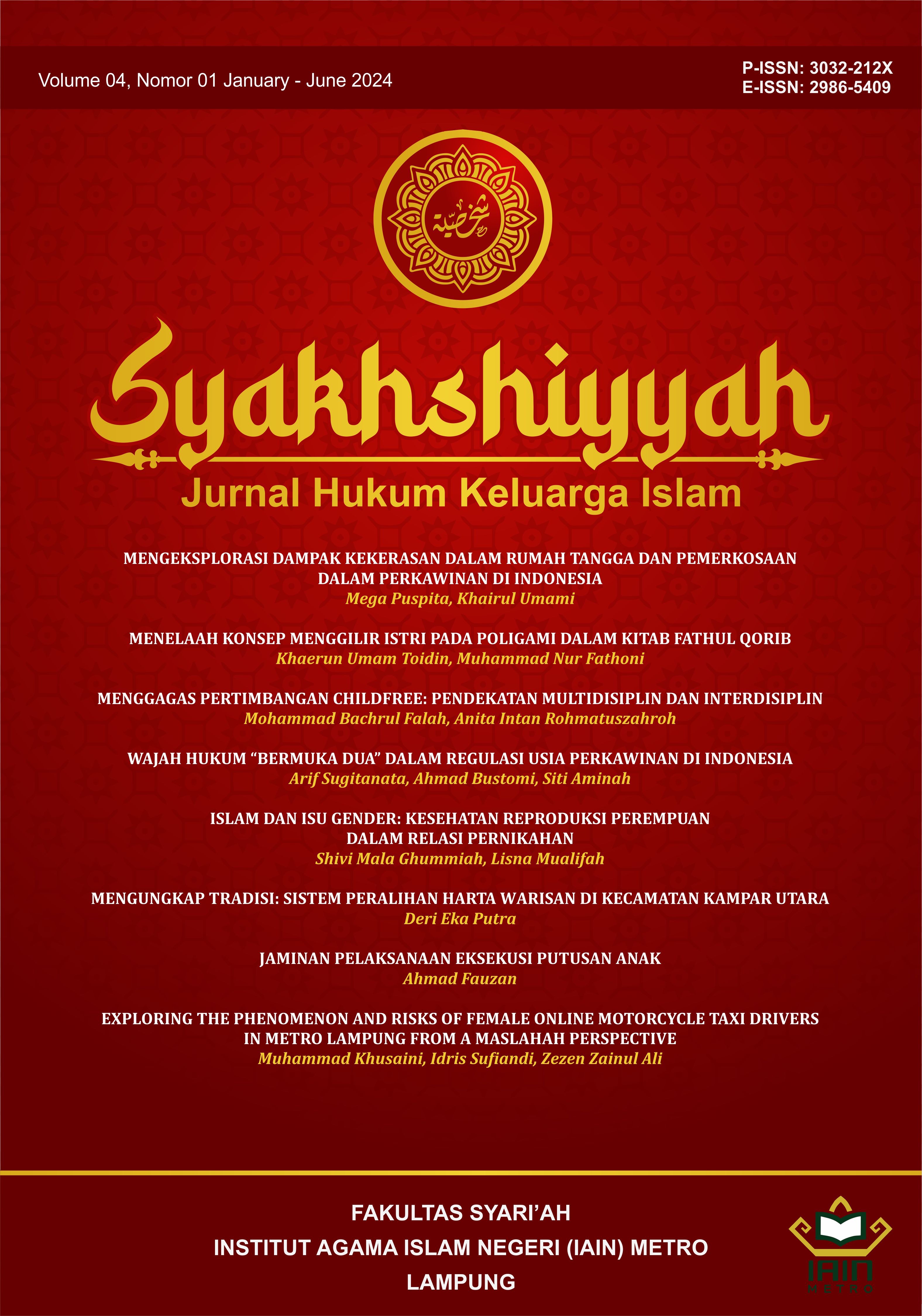Islam dan Isu Gender: Kesehatan Reproduksi Perempuan dalam Relasi Pernikahan
DOI:
https://doi.org/10.32332/syakhshiyyah.v4i1.9251Keywords:
Gender, Marriage, Reproductive HealthAbstract
Women's reproductive health has become a global conversation, especially in relation to the topic of early marriage. The topic of women's reproductive health is not only concerned with the cases that have occurred, but also the problems that cause many issues related to women's reproductive health to still occur. This research aims to elaborate the gender perspective with existing Islamic knowledge to achieve an understanding of women's reproductive health in a good marriage relationship and in accordance with Islamic law. This research is a library research (Library Reseach) by using references to Al-Qur'an verses, tafsir, books and articles relevant to the research. The data collected will be analyzed using qualitative methods. The approaches used in this research are normative and gender approaches. The result of this research is that the protection of women's reproductive health is something that must be pursued to realize family resilience and reduce the number of women exposed to risks from the reproductive process, such as maternal mortality and childbirth. In addition, maintaining women's reproductive health is included in the efforts of hifz nafs and hifz nasl in maqashid sharia.








